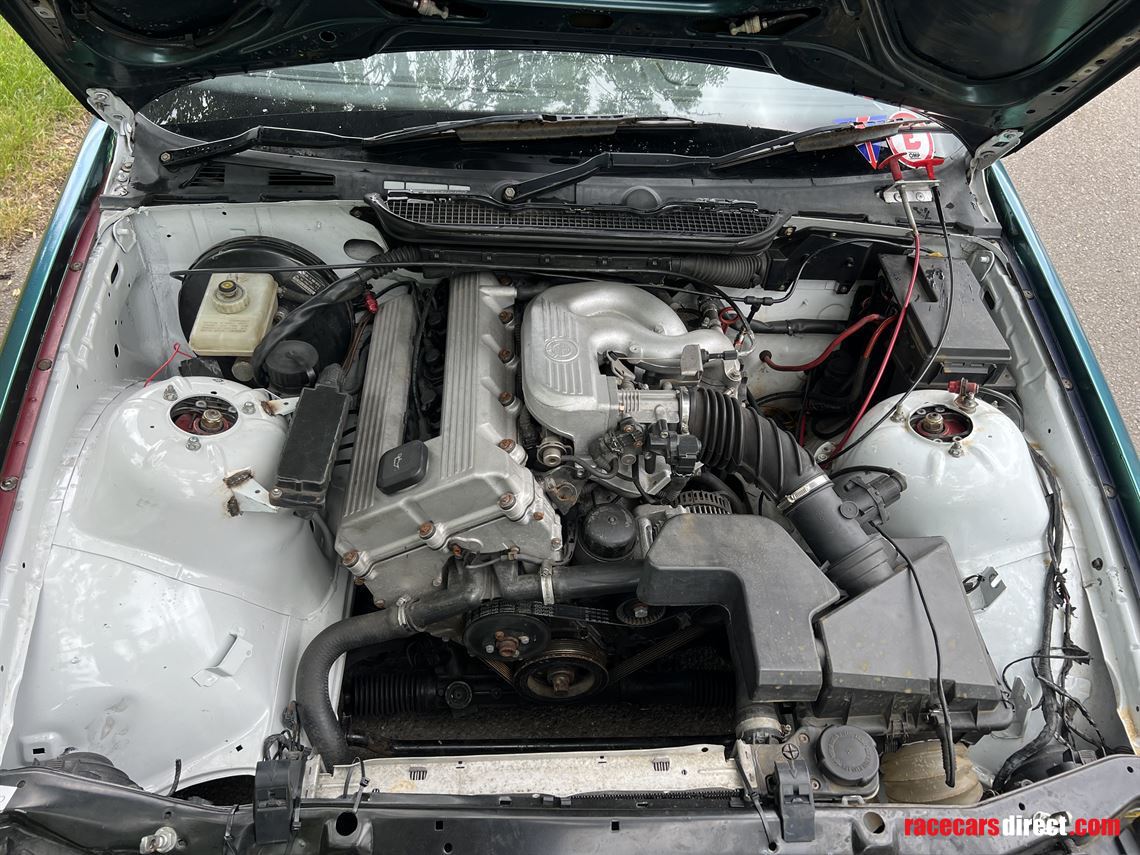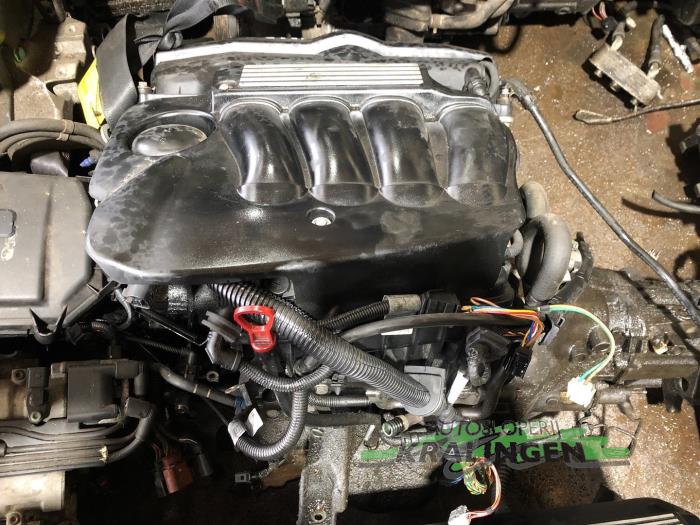Maintaining Your BMW 318ti: Vital Tips for Durability
Maintaining Your BMW 318ti: Vital Tips for Durability
Blog Article
Key Features to Look for When Purchasing an Engine for Automotive Applications
When considering the purchase of an engine for automotive applications, a number of key functions warrant careful evaluation to guarantee ideal performance and performance. From power and efficiency abilities to sustain toughness, adherence, and performance to discharges criteria, each aspect plays a critical role in determining the engine's viability for certain auto needs. Cost-effectiveness continues to be an essential factor in the decision-making procedure, balancing high quality with monetary considerations. These functions collectively add to the overall performance and reliability of the engine, affecting the driving experience and long-term satisfaction of the customer.
Power and Efficiency
When picking an automotive engine, buyers prioritize power and performance to make certain optimal driving experience and effectiveness. The power outcome of an engine, usually measured in horsepower (HP) or kilowatts (kW), dictates the acceleration, full throttle, and general abilities of a lorry. Greater power ratings normally result in quicker acceleration and better performance, specifically during overtaking or carrying hefty lots. Efficiency, on the various other hand, includes a more comprehensive range of features, consisting of fuel effectiveness, emissions, reliability, and total driving characteristics. A well-performing engine not just provides power efficiently but additionally runs smoothly across various rate varieties and driving conditions.
Customers usually take into consideration the engine's torque outcome together with its power rating. Torque, measured in pound-feet (lb-ft) or Newton-meters (Nm), mirrors the engine's rotational pressure, influencing the car's ability to tow, climb inclines, and increase from dead stop. A balance in between power and torque is important for accomplishing a responsive and versatile driving experience. Additionally, variables such as engine crossbreed, variation, and turbocharging technologies play significant duties in boosting both power and efficiency levels. Ultimately, picking an engine that provides a powerful combination of power and efficiency guarantees a satisfying and effective driving experience. bmw 318ti.
Gas Performance
Optimizing gas effectiveness is a vital factor to consider for consumers when evaluating automotive engine alternatives. Modern engines with functions like straight fuel injection, turbocharging, and variable valve timing can substantially boost gas efficiency by enhancing burning procedures and decreasing energy loss.

Toughness and Integrity
Accomplishing long-lasting efficiency and reputable operation is essential for customers evaluating the toughness and reliability of auto engines. When considering an engine for auto applications, resilience describes the engine's ability to stand up to wear, stress, and extreme operating problems over a prolonged duration. Integrity, on the other hand, suggests that the engine can consistently do its desired function without unanticipated break downs or failings.
Customers should search for engines created with high-quality materials and exact design to guarantee durability. Elements such as crankshafts, bearings, and pistons need to be durable to deal with the engine's power outcome without early wear. In addition, engines equipped with advanced cooling systems, effective lubrication, and robust filtering devices often tend to show greater degrees of reliability.
Regular maintenance and adherence to producer recommendations are likewise vital consider protecting an engine's toughness and integrity. By adhering to upkeep timetables, making use of advised liquids, and addressing any issues quickly, consumers can make best use of the life-span and efficiency of their vehicle engines. Eventually, prioritizing sturdiness and dependability in engine choice can result in a much more satisfying possession experience with less unforeseen disruptions.
Emissions Compliance
Ensuring compliance with emissions laws is an essential facet of examining automobile engines for eco aware customers. With enhancing concerns regarding air top quality and ecological influence, rigorous emissions requirements have been implemented internationally to lower unsafe toxins released right into the environment. When acquiring an engine for vehicle applications, it is important to consider its exhausts conformity to reduce the carbon impact and follow lawful demands.
Modern engines are furnished with sophisticated visite site emission control modern technologies such as catalytic converters, exhaust gas recirculation (EGR) systems, and selective catalytic decrease (SCR) to reduce dangerous exhaust gases like nitrogen oxides (NOx), carbon monoxide (CO), and hydrocarbons (HC) These systems play an essential duty in ensuring that the engine fulfills the defined exhausts standards and runs within permissible limitations.

Cost-effectiveness
When thinking about auto engine purchases, assessing cost-effectiveness is vital for customers looking for both efficiency and worth. Cost-effectiveness in engine procurement entails more than just the first acquisition rate. It incorporates the overall expenses connected to maintenance, fuel consumption, and potential repair work over the engine's life expectancy. Selecting an engine that uses a balance between long-term savings and upfront costs can cause substantial advantages for the customer.
Engines that are created to make the most of gas economy can lead to significant savings over time, particularly for individuals who drive regularly or over long distances. bmw 318ti. In addition, thinking about the schedule and affordability of spare components and servicing can contribute to the general cost-effectiveness of an engine.

Conclusion
In verdict, when purchasing an engine for vehicle applications, it is important to think about crucial attributes such as power and performance, fuel reliability, sturdiness and effectiveness, discharges compliance, and cost-effectiveness. These elements are vital in making sure that the engine satisfies the demands of the car and operates efficiently in different driving conditions - bmw 318ti. Making an informed decision based you can try this out on these criteria will inevitably bring about a effective and successful automobile engine purchase
From power and efficiency abilities to fuel durability, performance, and adherence to emissions standards, each facet plays a crucial duty in determining the engine's viability for specific automobile requirements. Engines created to run on alternative fuels such as check out this site electrical power, hybrid systems, or biofuels can supply enhanced gas economic climate and reduced discharges contrasted to standard gasoline or diesel engines. Consumers need to thoroughly take into consideration the fuel performance ratings and modern technologies incorporated right into automotive engines to make educated purchasing choices that straighten with their concerns for price savings and sustainability.
When thinking about an engine for auto applications, sturdiness refers to the engine's capacity to endure wear, stress and anxiety, and harsh operating problems over an extensive period.In final thought, when acquiring an engine for automobile applications, it is vital to take into consideration essential functions such as power and efficiency, gas reliability, resilience and performance, exhausts conformity, and cost-effectiveness.
Report this page